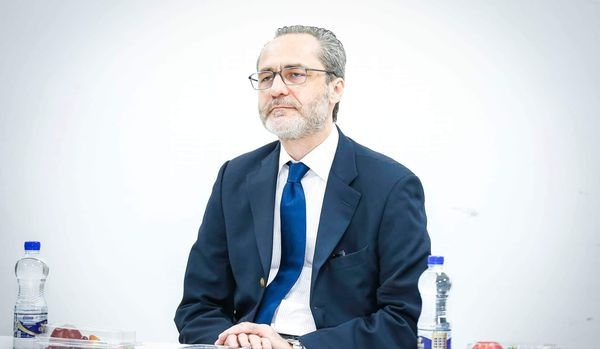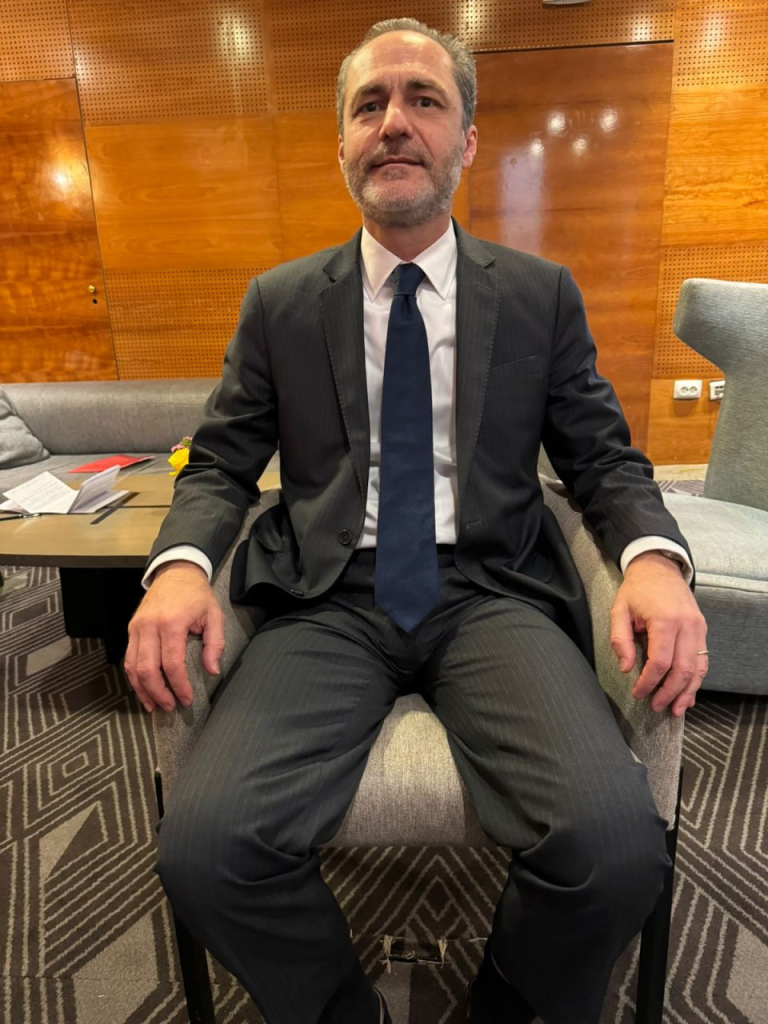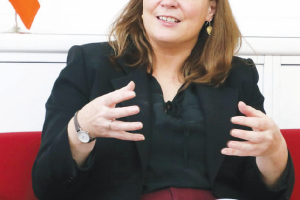
Alex Giacomelli da Silva
Though there have been long-standing relations between Ethiopia and Brazil, bilateral trade is still adventitious and unconsolidated. However, there is room for expanding mutual trade as well as creatively overcoming our geographical distance as well as deeper culture and mutual knowledge. Between 2004 and 2014, Brazil and Ethiopia managed to keep an average annual bilateral trade of over 40 million USD.
The two governments are working hard to elevate the trade ties as per the level of political and other relations. In this context, the reopening of the Ethiopian Embassy in Brazil early this year was indeed an important step.
Moreover, the signing of the agreement between the two governments in investment cooperation and facilitation back in 2018 is also very important in our economic relations. The agreement provided to investors from both sides with the additional reassurances including a dispute settlement arrangement enshrined in a legal framework backed by the Ethiopian and Brazilian governments.
The substantial flight connections established over the recent years between Brazil and Ethiopia and consequently the whole of Africa is also another opportunity to up the trade relations. Ethiopian Airlines operates a daily flight between Addis Ababa and São Paulo. Business people know there is no investment in face-to-face meetings and as you know well it is crucial to be able to travel to reach the potential buyers and sellers in person.
Ethiopia would become a full member of the BRICS as of the 1st of January 2024, likely increasing the opportunities for dialogues and exchanges. Brazil and Ethiopia should make the most out of it. We must endeavour to increase trade not only quantitatively but also qualitatively for the benefit of both sides.
Ethiopia will be considered as an official member of BRICS from January 2024, this strategic move will strengthen the current strong economic relations between Ethiopia and Brazil.
Being a member of BRICS is a significant economic, political and diplomatic victory for Ethiopia. Moreover, this partnership would amplify Ethiopia’s economic growth, diversify its export markets and provide broader opportunities for its emerging industries, particularly in the manufacturing sector.
Brazil has positive contributions to Ethiopia’s BRICS membership. This membership will take the long-standing friendship between the two countries to the highest level. Today’s guest of the Ethiopian Herald is Ambassador Alex Giacomelli da Silva who is also Director of the Department of Trade Investment and Agriculture under the Foreign Affairs Ministry of Brazil.
So far, Ethiopia and Brazil have a fledgling trade tie. Could you tell us how the two countries can further enhance the economic relations between the two countries?
First of all, we are here in Addis Ababa because we have a great attachment between the two countries. I don’t see the modest trade as a problem. I rather see them as an opportunity as we have a lot of sectors in which trade can grow. Some of them are aviation, transportation, domestic utilities, kitchenware, and machinery. I think we have a lot of opportunities. Of course, we learn from each other investment opportunities. We/Brazil / have to learn more about how to invest here. So we have to understand well and have something helpful.
This week the Brazilian Embassy in Addis Ababa has launched a trade and investment guide that will have an impact in resolving the shortage of knowledge of the Brazilian investors. There are also a lot of things that we can do together. The potential is there, and we have to know each other. This is the first step that we do on both sides. There are a lot of opportunities and potential. We can work to get better results in our trade and investment relations.

How helpful is this guide in interconnecting investors and in promoting trade in Ethiopia?
This guide contains all the information that helps Brazilian companies who need to export from Ethiopia. the companies that have already started to export from Ethiopia do have enough information on how they can do business in Ethiopia. Most of the time, these companies that have products might be interested in the Ethiopian market. However, companies in Brazil do not know if they are investing in Ethiopia and exporting various goods. They do not, for example, have knowledge and understanding of Ethiopia’s legislation, how they can operate their business, the culture of the society and so on. Thus this guide explains everything about Ethiopia. It elaborates on the business procedure that the companies need to follow. A Brazilian company with access to this guide may be more inclined to invest in Ethiopia. It is one of the key instruments that will improve trade relations between the two countries.
Reports from the Ethiopian investment commission indicated that there are only three Brazilian companies that have currently invested in Ethiopia. What is your reflection on the number of investors compared with the potential number of companies at home with the interest and capacity to invest in Ethiopia?
First of all, Brazilian businesses do not have an awareness of the business opportunities here in Ethiopia. This is something that we need to work out. Taking this interview as an opportunity, I invite Brazilian businesses to begin considering investing here in Ethiopia. I think there are a lot of opportunities here. As part of my trip here in Ethiopia, I visited three supermarkets here in Addis Ababa. In the meantime, talked to these supermarket managers and they told me that they have some difficulties in getting some suppliers due to some currency problems. Hence, it will be good for Ethiopia to see companies that produce locally. This is a very good example of the investment that could be in this country. So that will be interesting if potential investors in Brazil better help. Maybe Brazilian investors will see that as a wonderful opportunity.
The seminar that we organized this week aimed at bridging gaps from both sides. I think Ethiopian business people do not know Brazil and at the same time, Brazilin investors do not know about Ethiopia, despite the direct flight between the two
countries. It is the role of the government to bridge the gap between them. So the private sector can cross and see the opportunities. We brought people from Brazil and there were representatives of the private companies here as well.
In the technical meetings that were held after the seminar, Brazilian and Ethiopian businesses discussed the specific issue in detail. There was a field visit organized by the Industrial Parks Development Cooperation. This is a cumulative effort. It is the first step and the BRICS Ethiopia’s membership is coming up to show the alternatives. So this is what both governments are doing. We are just bridging the gap. This is just the beginning. The seminar is very productive and it is not an isolated event, it is a part of lots of things that are happening together.
Brazil is now producing high-quality agriculture machinery which is preferable to Ethiopian farmers and large-scale farming industries. How can Brazilian investors engage in this area and fill the demand for machinery?
This is one of the sectors in which we see great potential.
As you said we have high-quality machinery in Brazil and we export these machinery to the international market. We used to export two and three years ago. We can export those machineries again. So it is up to Ethiopian importers to show their interest and I am sure our companies are ready to sell them. I understand that there is a currency problem in Ethiopia and this is something that may be an issue for your importers. As far as Brazil is concerned these machinery are available and we can export them again to Ethiopia.
The most promising sector for the bilateral trade is the agriculture sector. One of the most important messages that I see we had at this seminar held recently is Brazil and Ethiopia do not necessarily have to be competitors. I think there is room for both countries to work together be it in the coffee, beef, and agricultural machinery which are well known in the market including in Ethiopia with very good price-quality.
We can get a quality product at a reasonable price. The Brazilian government is studying ways and means to help facilitate the importation of Brazilian machinery given the situation lack of currency in Ethiopia. This is something we do have in account working to see how we can help. The machineries are ready and we want to work together with Ethiopia.
We should not look at each other as competitors. Brazil exports different agricultural goods. You can find products that are not produced here. You find products that may complement production here so smart. you can import from brazil and the other way round.
Would you tell us the investment plan of Brazil in Africa using Ethiopia as a gateway for business?
Africa is a priority for Brazil. When we think of Africa, we necessarily think of Ethiopia, the thriving economy in a very strategic location in the continent, as the diplomatic headquarters of the African Union. We have a lot of interest in strengthening this relationship with Ethiopia and with Africa too. And the seminar held recently is an example that we are here not with words but with deeds. We decided on the foreign affairs of Brazil, apex-brazil which is a trade and promotion agency coming to Addis Ababa bringing high-level representatives of the Brazilian government.
And they meet with Ethiopian representatives here. Then both sides see the opportunities and challenges. So we can only do business together and we also know the opportunities. There is a plan for the Ethiopian delegation to visit Brazil next year. This idea came up during the seminar that we have had recently. This is like creating a new initiative as we speak. Brazil is already doing tasks to enhance business tasks. This is just a first step.
We look at Africa as one of the priorities in our foreign policy at all levels such as political, economic and so on. Concerning trade and investment, we will work very hard to gain mutually beneficial results. The economic situation of African countries like Ethiopia is growing very fast. My instruction is to work with Africa to have projects that are proven to produce mutual benefits.
Ethiopia is more important for us and the world. Brazil will be the chair of BRICS in 2025. This is very interesting for both countries. The African Union (AU) has just entered the G-20 as well. Now, Ethiopia has played a key role in this process since the AU is here. I think Ethiopia will play an important role in these processes and this is very interesting for our political and economic relations.
What are the areas of cooperation identified to enhance business ties between the two countries?
This is part of our learning process. When we approach one another and talk about opportunities, we will identify areas of cooperation in trade, investment and agriculture. Here I can mention some of them that we have identified immediately. Aviation, transportation, domestic utility, kitchenware, machinery, and agricultural inputs are some of the areas in which we can work together and gain results very quickly.
As it is known for agricultural productivity, what lesson can Ethiopia learn from Brazil in terms of improving the coffee and other agricultural subsectors?
I think our cooperation in the agricultural sector is the result of a very long process. Concerning technology, we have in Brazil a public company called Embraper which was founded 50 years ago. In that we developed a lot of technology which was later used in our agricultural sector. This was very important for the development. In addition to Embraer, other companies play a role in technological advancement. Of course, there were a lot of public policies that helped the entrepreneurs or the private sectors to flourish. I think that I would mention these three factors; technological advancement, government policies and the private sector involvement contribute a lot to the success of the agriculture sector.
How can Ethiopia’s membership of BRICS strengthen the trade and bilateral relations between the two countries?
Although BRICS is a multilateral sentiment, it helps countries to put together bilaterally. In every BRICS meeting, there are bilateral meetings and facilitations to talk about specific problems of BRICS members. So, it is an opportunity to strengthen bilateral relations and it helps understand each other. It helps them to find solutions to their problems. So I think that membership in BRICS helps to deepen bilateral relations and find solutions that each of the countries in the BRICS have. I think it will be very productive for bilateral relations.
BRICS is a like-minded group. Countries are getting together. We do have to agree with everything in the BRICS. It is an instrument for the countries to understand each other in the multilateral forum. Naturally, the bilateral synergies happen once countries meet regularly. Each one of us sees the opportunities to do business together. So this is an environment conducive for Brazil and Ethiopia to know each other even more and to see the opportunities on both sides. We are very optimistic about Ethiopia’s membership in the BRICS. I think my government is closely working with Ethiopia.
Thank you very much!
My pleasure!
BY GIRMACHEW GASHAW
THE ETHIOPIAN HERALD SATURDAY 16 DECEMBER 2023




